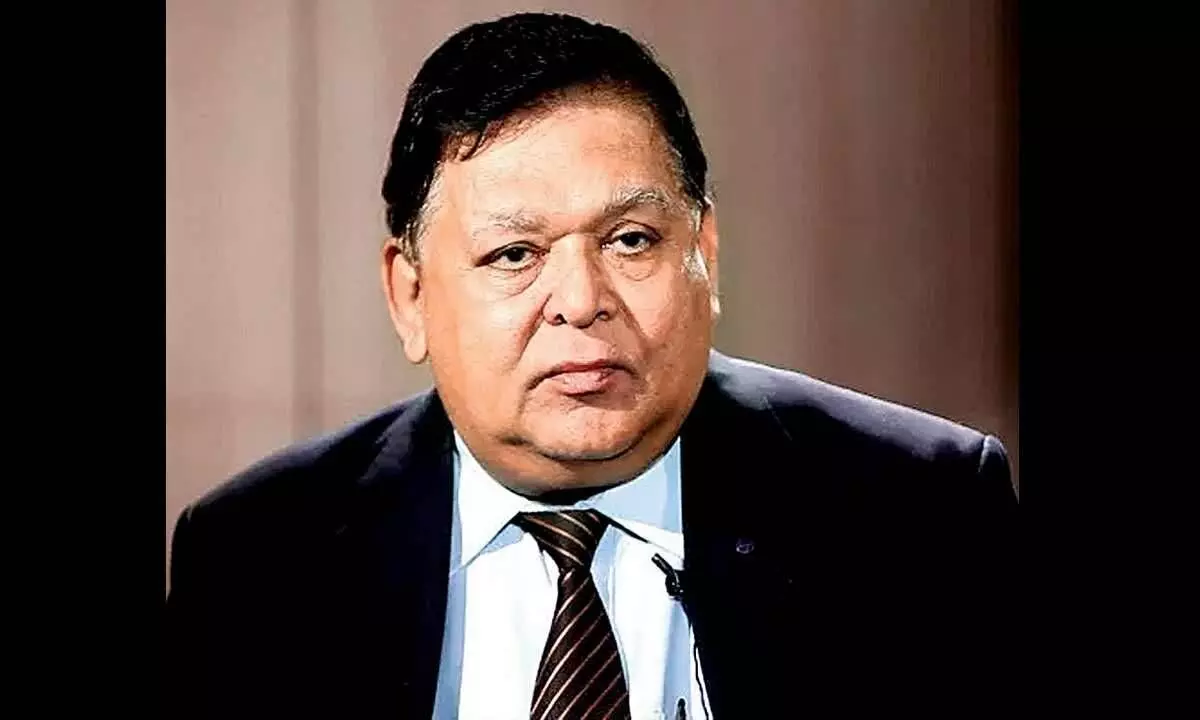L&T boss is bang on, Centre should pursue his suggestions
While the Narendra Modi government is keen on financing and streamlining infrastructure projects, there remain many issues that need to be addressed urgently. One of them pertains to the tendering process for awarding construction contracts. Anil M. Naik, outgoing chairman of Larsen & Toubro (L&T) recently told a business newspaper that the process is broken and needs to be fixed urgently to reduce cost overruns to the tune of lakhs of crores of rupees. It may be pointed out that even the government recognizes defects in the tendering process cause time and cost overruns. Naik highlighted a couple of aspects that often cause delays and, consequently, augment costs. He seemed to lament the fact that while Saudi Arabia gives projects worth billions of dollars to his company, in India huge projects are often “divided into separate packages and then the contracts are awarded to multiple companies.
image for illustrative purpose

While the Narendra Modi government is keen on financing and streamlining infrastructure projects, there remain many issues that need to be addressed urgently. One of them pertains to the tendering process for awarding construction contracts. Anil M. Naik, outgoing chairman of Larsen & Toubro (L&T) recently told a business newspaper that the process is broken and needs to be fixed urgently to reduce cost overruns to the tune of lakhs of crores of rupees. It may be pointed out that even the government recognizes defects in the tendering process cause time and cost overruns. Naik highlighted a couple of aspects that often cause delays and, consequently, augment costs. He seemed to lament the fact that while Saudi Arabia gives projects worth billions of dollars to his company, in India huge projects are often “divided into separate packages and then the contracts are awarded to multiple companies. As a result, while we finish our construction in time… other, less experienced players are left behind, resulting in the entire project falling behind.”
This is a valid point. Perhaps, the government wants to check monopolistic practices, but this endeavour should not be at the expense of repeated overruns.
Delayed projects have already cost the nation dear—more than Rs 4.6 lakh crore, to be more precise. Decision makers should not make the present situation unbearable in order to preempt some problem (monopoly in this case) arising in the future. Besides, there is the Competition Commission of India (CCI), a statutory body whose raison d’etre is the prevention of market dominance of a company or cartel. Let the CCI deal with the matters within its remit and let the government focus on, among other things, bolstering infrastructure. Naik also highlighted the problems related to the convention of government accepting the lowest bid: “Many a time, less qualified companies win projects just by quoting the lowest figure, but they fail to complete them in time. This needs to change in the national interest.” This suggestion needs to be taken seriously. It is correct that doing away with the L-1 bidding system in general will cause a major disruption and may result in arbitrariness, corruption, etc. In the case of major infrastructure projects, however, opting for the cheapest bid is not a very reasonable thing to do. In April last year, the government did make some changes in the L-1 bidding system, but apparently a lot more needs to be done.
The good thing is that the government is quite innovative in its approach towards infrastructure building. PM Gati Shakti, a GIS-enabled National Master Plan (NMP) for multi-modal connectivity, exemplifies that. As Bizz Buzz reported recently, the Ministry of Petroleum & Natural Gas’ Detail Route Survey (DRS) was able to perform a task in a few hours that otherwise would have taken six to nine months. In planning alignments of five pipelines in the North-East, the ministry could reduce the overall length by 42 km and project costs by Rs 169 crore. The Railways is carrying out Final Location Surveys (FLSs) in a far quicker manner. Now, the government should also scale up its interaction with private sector experts like Naik to expedite infrastructure development and achieve the goals.


